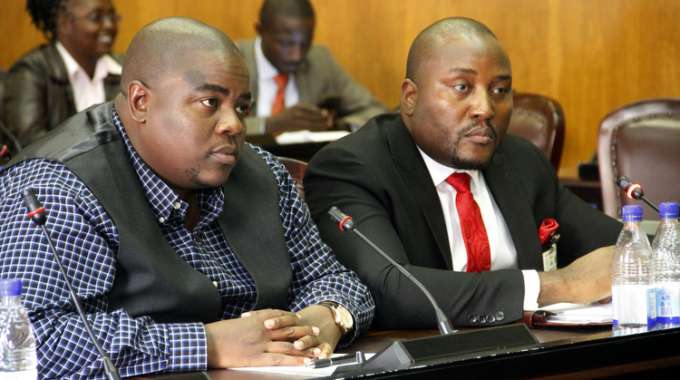CONTROVERSIAL businessman Wicknell Chivayo says he could have completed the 100 megawatt (MW) Gwanda solar project in eight months had it not been for the Zimbabwe Power Company (ZPC) board's intransigence, documents show.
The development comes as the Intratrek Zimbabwe founder's technical partners Chint Electric have reportedly been sanctioned from trading on the African continent for three years and Parliament has censured Zesa Holdings for putting its faith in "a dysfunctional, and energy upstart".
"We respectfully submit that … this letter is purely informed by the obligation upon any entity implementing a project of national importance to report on progress … to all key stakeholders … This report … should, therefore, not be construed to be a direct response to the various allegations of omission and commission on the part of Intratrek … or on the person of … the company's managing director," Chivayo said in a June 25 letter to President Emmerson Mnangagwa.
"With specific regards to the 100MW Gwanda solar project, Intratrek enlisted the services of Chint as its technical partner. On the strength of this partnership, Intratrek/Chint jointly participated in a tender flighted by ZPC in 2013 … to submit three envelope bids to construct a photovoltaic (PV) solar plant (and) was awarded by the State Procurement Board on the principle of having the most economical, and advantageous cost differential," he said.
"The award was also based on a consideration of Chint's technical competence to execute the project at a minimal cost to ZPC. The tender was, therefore, awarded … as the lowest bidder to specification (and) we find it imperative to note that at no point did Intratrek tout itself as an expert in solar PV manufacturing or construction, a position we maintain to date. At that time, no Zimbabwean entity had any prior experience in solar technology and its optimum application at this scale," Chivayo said, adding his company had consistently "held itself out as a local partner while the $30 billion Chinese giant was the implementing partner and that it was deeply inopportune for anyone to ascribe failure on its part based on the company's mediocre expertise in the industry".
While the energy greenhorn had listed China Eximbank as its financier for the Matabeland South project on bidding in 2015, the latter had only expressed its willingness to fund the power project based on "the Zimbabwean government's ability to clear arrears with Sinosure ― the guarantor of all funding from Beijing.
"Had the funding been readily available through ZPC, Intratrek/CHiNT would only require 6-8 months to implement the contract and feed clean (solar) energy to the grid. By comparison, only Intratrek … has made notable progress … compared to ZTE Corporation and Number 17 Metallurgical Chin …," Chivayo said, adding his company had also completed about 80 percent of pre-commencement works on site and further delays in the implementation of the project had been a result of procedures around financial closure to the $140 million plant.
"It is, therefore, clear that ZPC's complacency has caused delays in implementation of the project. ZPC is not obliged to secure funding for the project, but should render all practical assistance to the contractor to ensure that financial closure is reached. The ZPC has been intransigent and has assumed powers… of the ministry. The board has been sailing in a direction that is inadvertently opposite to the ease of doing business," Chivayo said, hinting he had no joy in resolving the Sinosure matter after engaging the ZPC tribunal.
Despite tabling alternative funding models based on raising finances from the local market, including energy bonds from CBZ Bank Limited, a phased 25MW development of the project and pledges of a $52 million advance payment from Chint, Intratrek says it has not had any responses from the project owners.
The intervention from the Asian behemoth would not only release funds representing nearly 30 percent of total project cost, but cover possible performance risk and while the phased development of the project would help with catching up on lost time.
"CBZ expressed willingness to … raise the required funds for the project. Notwithstanding Intratrek's proposal and the minister's strong recommendation … the ZPC non-executive board … contemptuously refused, neglected and or rejected to implement the proposed option for reasons unknown to us," Chivayo said.
Crucially, the flamboyant trader has not only insisted that Intratrek had submitted its feasibility and geo-technical surveys ― at a cost of nearly $3 million, and thus limiting ZPC's exposure from the $5,1 million it had paid already ― but projects of this nature had longer gestation periods, as typified by the Hwange and Kariba South power stations, which took no less than three years.
According to Intratrek, it has cleared over 80 hectares of the Gwanda farm and progress had been made against the odds, especially lack of support from the ZPC ― and the Zimbabwean sovereign debt issues.
- fingaz
 Concern over Masvingo black market
Concern over Masvingo black market  Kenya declares three days of mourning for Mugabe
Kenya declares three days of mourning for Mugabe  UK's Boris Johnson quits over Brexit stretegy
UK's Boris Johnson quits over Brexit stretegy  SecZim licences VFEX
SecZim licences VFEX  Zimbabwe abandons debt relief initiative
Zimbabwe abandons debt relief initiative  European Investment Bank warms up to Zimbabwe
European Investment Bank warms up to Zimbabwe  Young Investment Professional (YIP) Graduate Programme 2019
Young Investment Professional (YIP) Graduate Programme 2019 











 Young Investment Professional (YIP) Graduate Programme 2019
Young Investment Professional (YIP) Graduate Programme 2019
Editor's Pick